The reindeer or caribou (Rangifer tarandus) is a mammal belonging to the deer family (Cervidae). The term "caribou" is commonly used in North America for wild populations, while "reindeer" refers to domesticated or semi-domesticated populations, especially in Eurasia. Across its wide distribution, various subspecies exist that differ in size and coat color. There are 4 subspecies in Eurasia and 5 in North America.
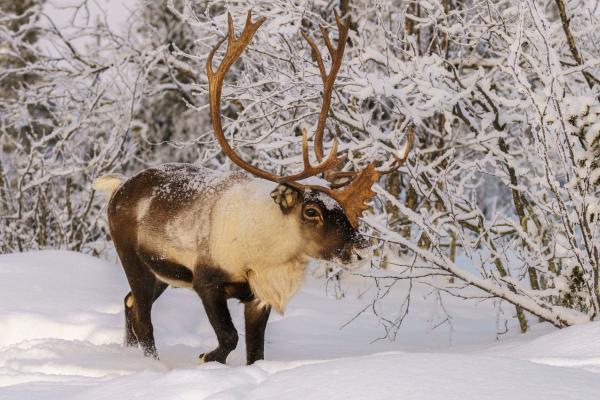
Size: Reindeer are large and robust with short tails. Males weigh between 150–300 kg and females between 80–120 kg. Shoulder height can reach up to 120 cm.
Antlers: Both sexes have antlers—a rare trait among deer. Males have large, branched antlers (52–130 cm), while females’ antlers are shorter and simpler (23–50 cm).
Fur: Dense, woolly fur protects them from extreme cold. Coloration ranges from dark brown to nearly white depending on region, gender, and season.
Hooves: Broad hooves help them walk on snow and dig for food.
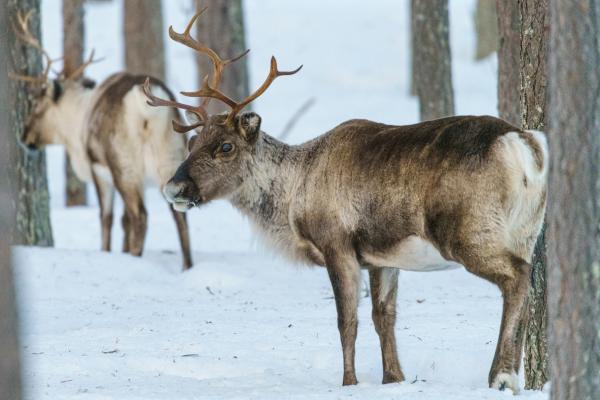
Eurasian Mountain Reindeer (R. t. tarandus): Domesticated in Scandinavia and Russia; genetically similar to North American caribou.
Tundra Caribou (R. t. groenlandicus): Found in Arctic North America and Greenland.
Woodland Caribou (R. t. caribou): Lives in Canada’s boreal forests and northeastern U.S.
Peary Caribou (R. t. pearyi): A small subspecies inhabiting Canada’s Arctic islands.
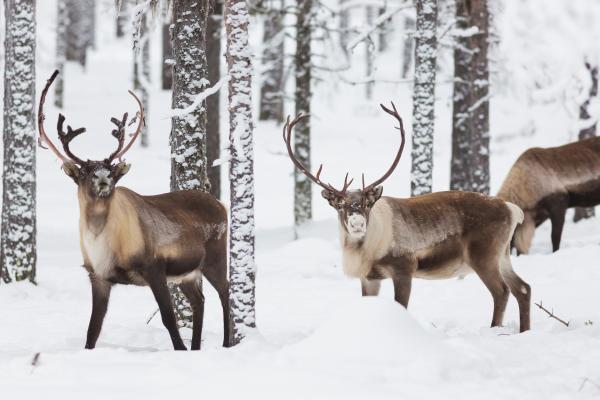
Reindeer inhabit a range of northern ecosystems:
Arctic Tundra: From polar deserts to moist shrublands;
Coastal Plains: Low grassy tundras in North America and Russia;
Transition Zones: Tree lines separating tundra from boreal forest;
Mountains: Alpine tundras above coniferous forests;
Southwest Greenland Coast: Fjord-separated tundra strips.
Reindeer are herbivorous ruminants. They mainly consume willow and birch leaves, as well as mosses and lichens. They can eat up to 5 kg of food per day. Their diet changes seasonally, focusing on buds and young leaves for maximum nutrition.
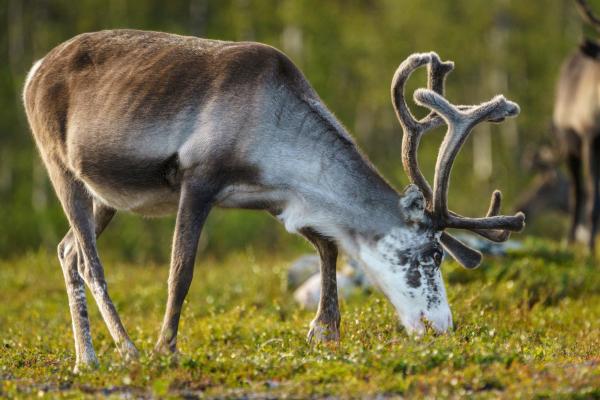
Mating occurs in autumn. Males stop eating and engage in intense antler battles to win harems of 5–15 females. Gestation lasts about 230 days. Usually, one calf is born in spring, when food is more abundant.
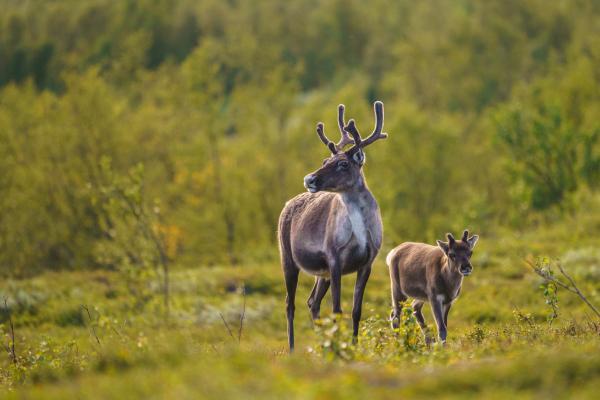
Major threats include:
Habitat Alteration: Logging and industrial development;
Habitat Fragmentation: Roads, energy plants, and tourism hinder migration;
Unregulated Hunting: Especially impacts tundra populations;
Climate Change: Alters forage availability, snow/ice layers, and habitat quality.
The IUCN classifies the species as Vulnerable. Conservation efforts include hunting regulations, protected areas, and climate adaptation strategies across their range.
animal tags: reindeer
We created this article in conjunction with AI technology, then made sure it was fact-checked and edited by a Animals Top editor.